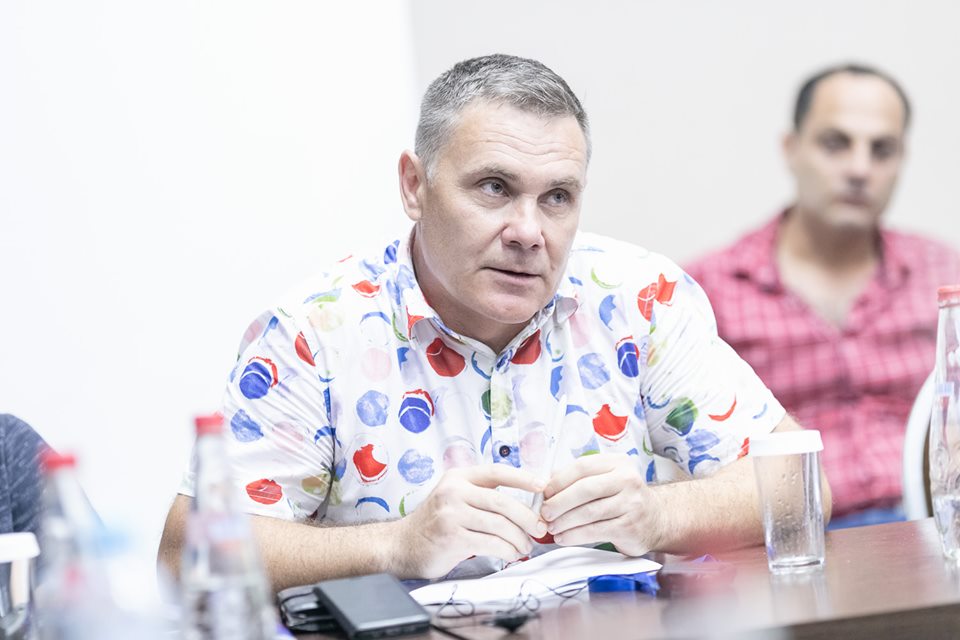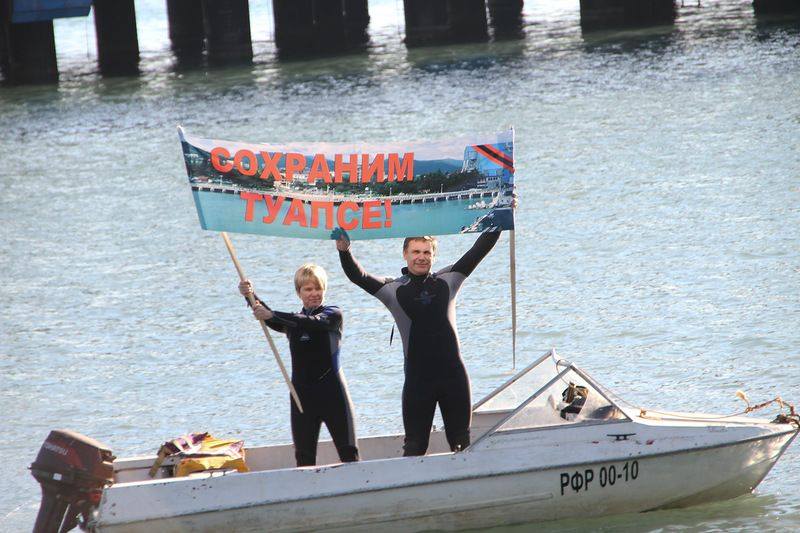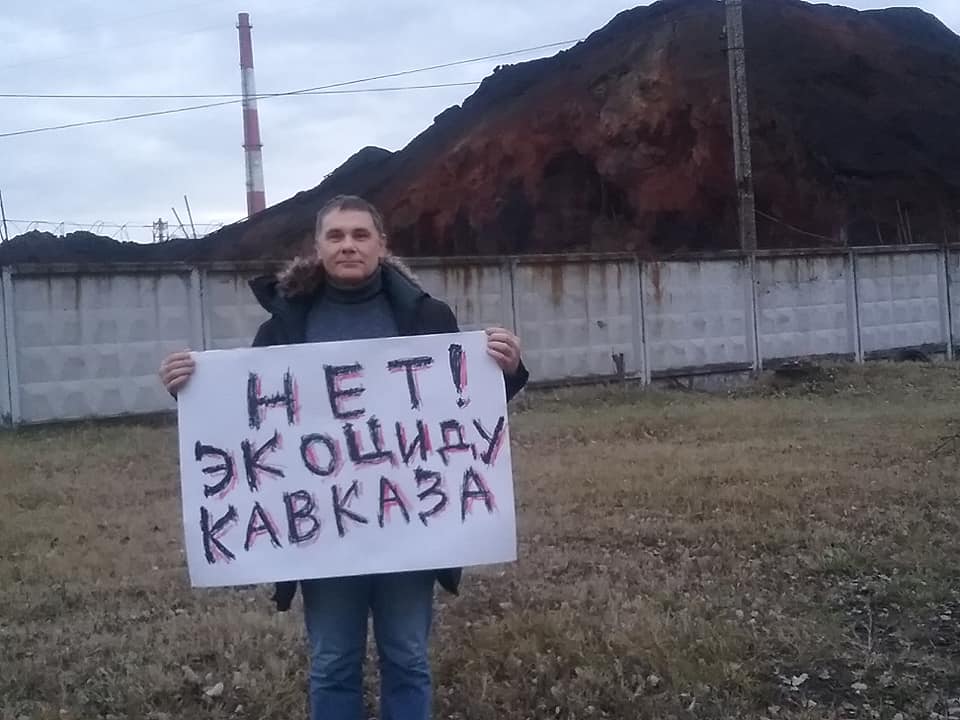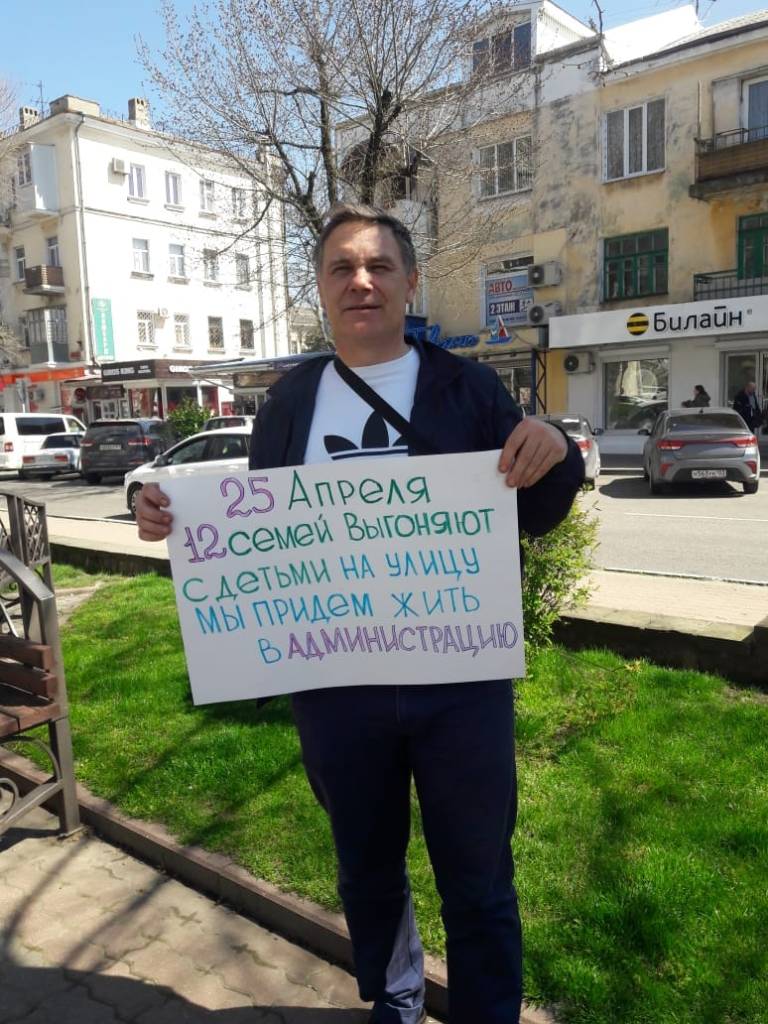
Since he was a kid, Evgeny Vitishko has been interested in protecting the environment. He went from planting trees and cleaning up litter as a child to spending nearly two years in a penal colony as a result of his environmentalism; that’s what can happen when you stand up for justice and the land in Russia, for you come into conflict with those in power.
Evgeny grew up in the Northern Caucasus region of Russia by the Black Sea, and it was there, in Tuapse, that he first began working, albeit indirectly, in the environmental space at a municipal enterprise to support tourism development. As a part of this work, he was responsible for creating new tourist routes and ensuring beaches and train were clean. Then, he headed up the Tuapse Environmental Council and at the university chaired an organization that did research and educated youth, including by holding an international conference on environmental problems in Southern Russia.
Things shifted in 2005, when reportage came out about oil pollution in the Black Sea from Rosneft, a state-controlled fossil fuel company. Evgeny got involved in working to prevent the construction of a new oil terminal on the sea, his first experience organizing—and in coming up against the government. In 2010, more than four thousand people protested in Tuapse, which was a first. Of course, Evgeny had to do a lot more to generate awareness: meetings, displays, pickets, conferences, legal cases, and so on.
In the end, he didn’t consider the campaign fully successful since the terminal wasn’t fully prevented, though plans were changed and company heads and local government leaders were forced out.
Happily, Evgeny has been involved in other, successful campaigns. One of these is the prevention of a gravel mine in the Shakhe River, which flows through Sochi National Park, the Caucasus Nature Reserve (a UNESCO World Heritage Site), and is in the territory of the Adyghe people (a Northwest Caucasian ethnic group). As a result of his efforts, official permitting for the project was completely revoked.

Perhaps what Evgeny is best known for are his efforts to fight environmental degradation related to the Sochi Olympics and the concurrent construction of resorts for Putin and his friends. He fought to bring attention to the fact that a road was being built through the national park and nature reserve to Lunnaya Polyana, Putin’s mountain resort, which is squarely in a UNESCO-protected region. To date, construction of the road has stopped.
But of course, all of Evgeny’s activities to bring attention to the ecological horrors happening in pursuit of the Olympics—and government officials’ lavish getaways—were a threat. Evgeny and his colleague at Environmental Watch on the North Caucasus (EWNC), Suren Gazaryan, were given two-year suspended prison sentences for supposedly spraying graffiti on a fence surrounding the compound of Alexander Tkachyov, who at the time was the Governor of the Krasnodar region (after the Olympics, he was named the Minister of Agriculture). They had been leading protests about the fence, which blocked public access to the beach, and is in a national forest, and others who had joined the group sprayed the fence, but Evgeny and Suren were considered the troublemakers. Suren ended up fleeing Russia and was granted political asylum in Estonia. Evgeny stayed, and right before the Olympics, in February 2014, he was arrested for “swearing at a public bus stop.” While he was imprisoned and therefore unable to talk to media or help release a report by EWNC on Olympics-related destruction, his suspended sentence was handed down. It took the judge under two minutes to render the verdict. And so, Evgeny spent nearly two years in the Sadovaya penal colony in the Tambov region. He was released at the end of 2015.
Despite it all, Evgeny says he likes to think he hasn’t changed in terms of his moral qualities or ways of thinking, though he has evolved in terms of tactics. “My worldview has definitely not changed. My attitude to power, to systems and institutions of government, to cult subjects and Orthodoxy has changed. I’ve changed the ways, methods, and mechanisms by which I conduct activism campaigns.”
Of course, Evgeny has had to find ways to cope as well, since he unsurprisingly must deal with moments of fear and sometimes apathy when things aren’t going as planned. He takes the advice of friends and spends time in the forest and the mountains. He also recognizes taking time off to protect yourself can be important. But, Evgeny recognizes that “this is not always possible, plus often the authorities have learned how to deal effectively with civic activism, with intimidation, bribery, repression, lies, et cetera, and not everyone will withstand it. But there is no other way.”
When asked what he would advise people who want to be active, Evgeny explains that it doesn’t matter exactly how you do it and that the causes are many; what is important is simply uniting around a common cause. “What is more difficult is developing a need for civil society, so that respect for nature becomes part of the worldview, politics, and consciousness of people. And I believe it will come.”
Evgeny says he likes to think of himself as a politician, except it’s really not so—“there aren’t politicians in Russia except for Putin’s.” Therefore, he’s an activist, a human rights defender, and a liberal. When it comes to democracy, Evgeny stresses that it’s not only about elections, “but rather ideas and principles accepted by people as a common, shared good which allows people to live freely and at the same time, responsibly.” Right now, Evgeny thinks civil society in Russia isn’t strong enough to change the election situation in Russia (which is highly constrained, results often falsified, and results in the repeated dominance of the ruling party), but he will still fight for real elections. Meanwhile, he thinks that common sense and morality are more important at the moment than Russian laws, given the absence of fair trial, fair elections, and non-compliance with international agreements.
Right now, Evgeny is working on helping victims of floods that happened in the area in October 2018. He has helped bring people together to influence decision-making of the local and regional governments to help people who lost their homes and have nowhere to go. Evgeny has managed to help over 40 people. His sense of morality and justice is obvious through in his work. Despite the pressure and the punishment he faces when he comes up against those in power who plunder the land and sea for their own profit, at the expense of people living near these extractive industries, Evgeny has still kept at it, because he knows it is the right thing to do.
When asked what keeps him going, Evgeny responded, “Maybe it’s pathetic. But I sincerely believe this is my country, and also, that I am responsible for it. And in the ways I can, I help people and the environment. I think that sooner or later, the next generation (after Putin) will appreciate it, but for now my task is to preserve as much as possible.”
This profile is part of a series that was done with the support of the Henry M. Jackson Foundation as a part of their Leadership Fellows program. Learn more about the project here.




Share Your Thoughts